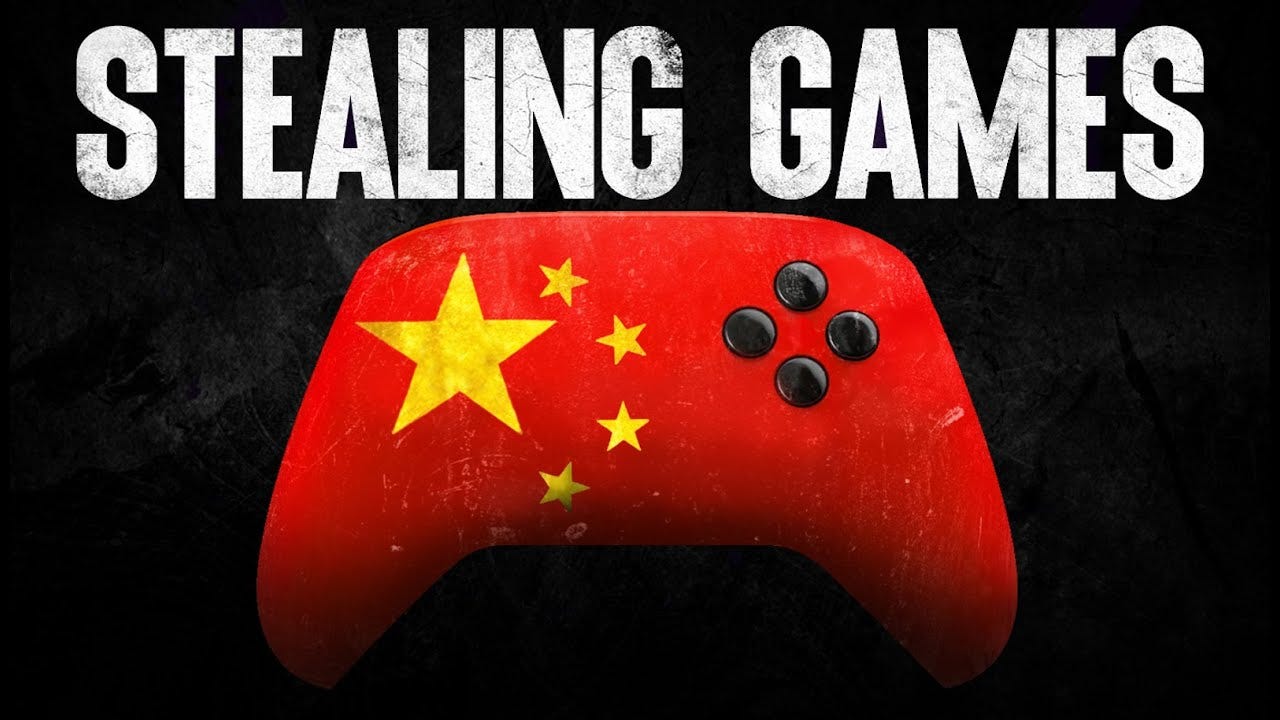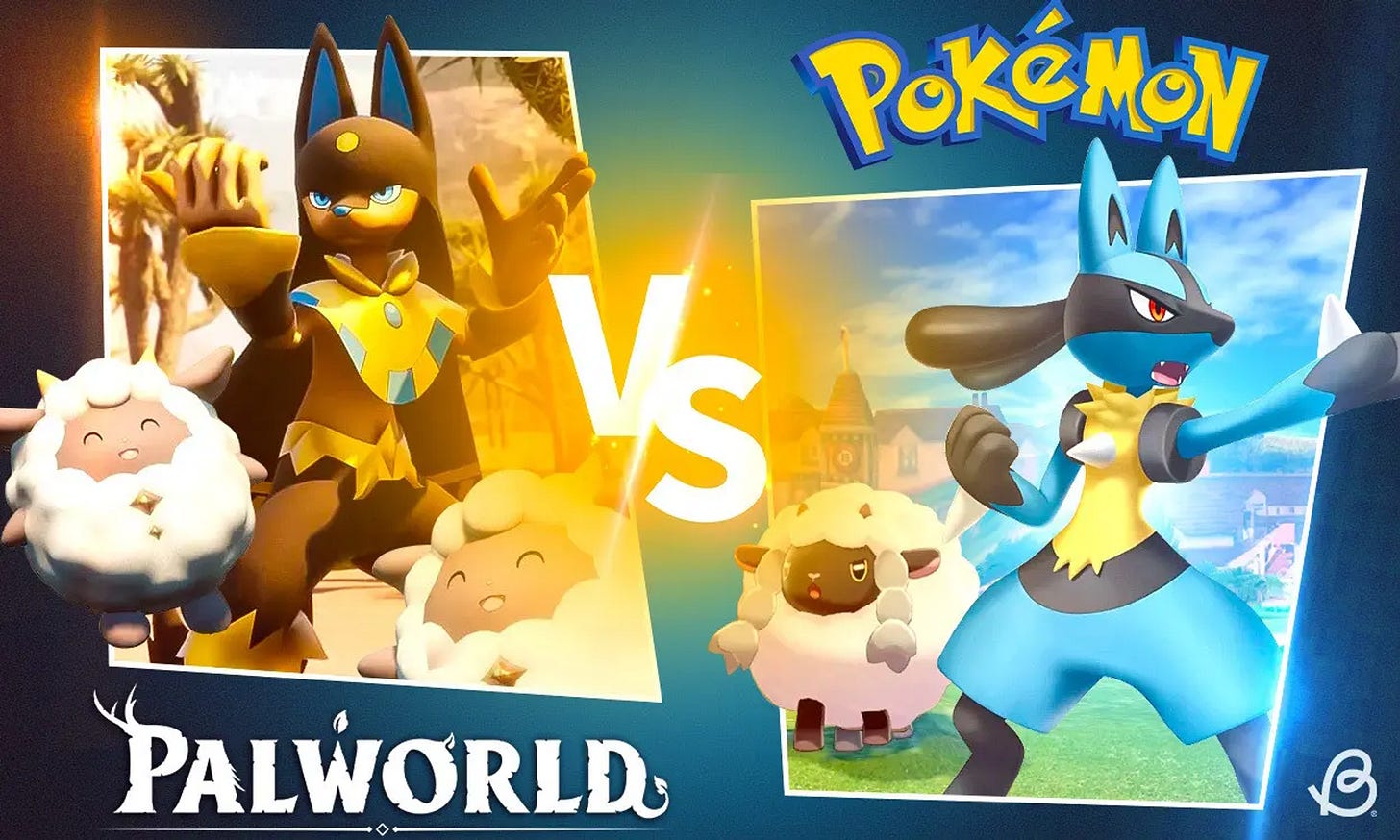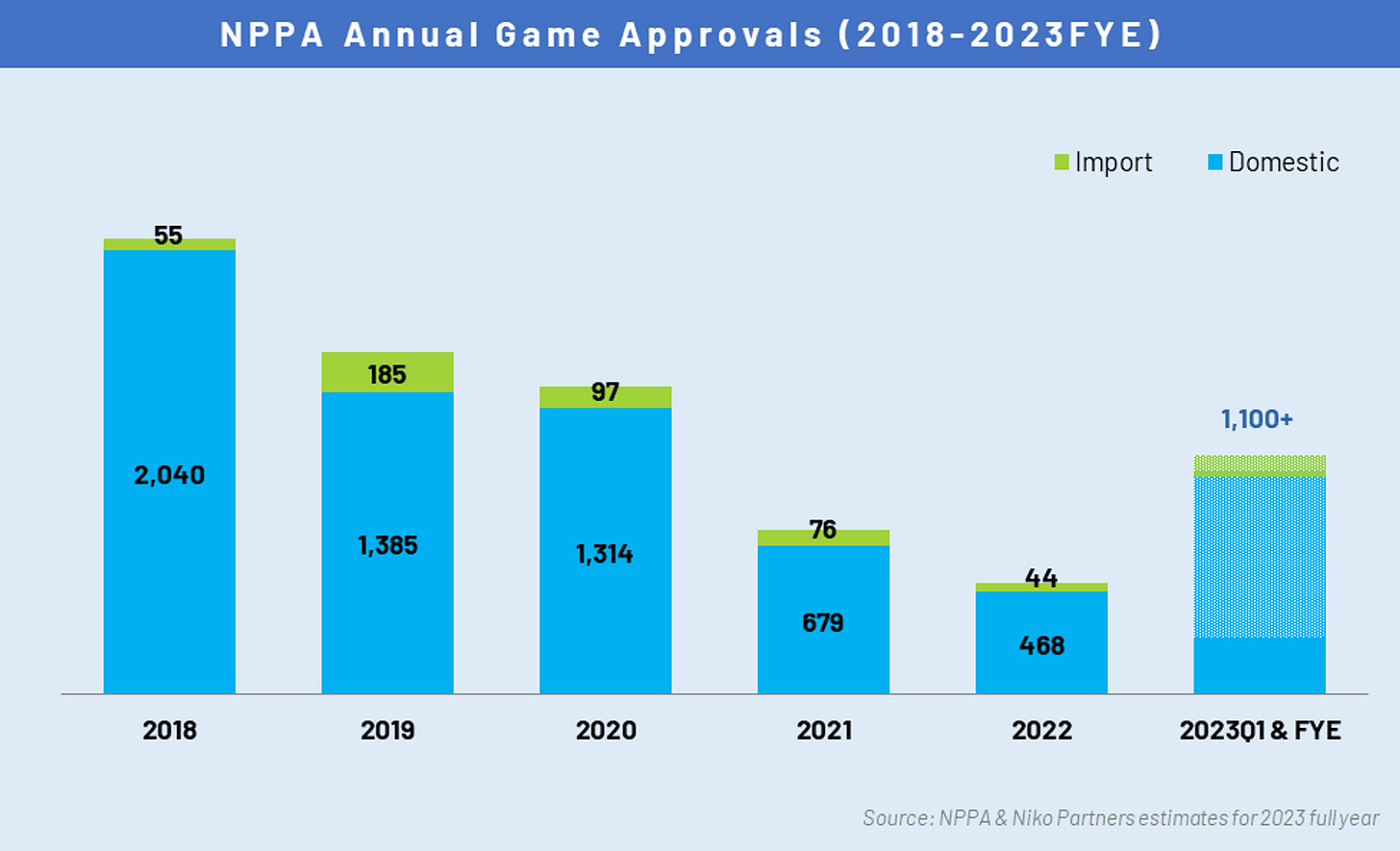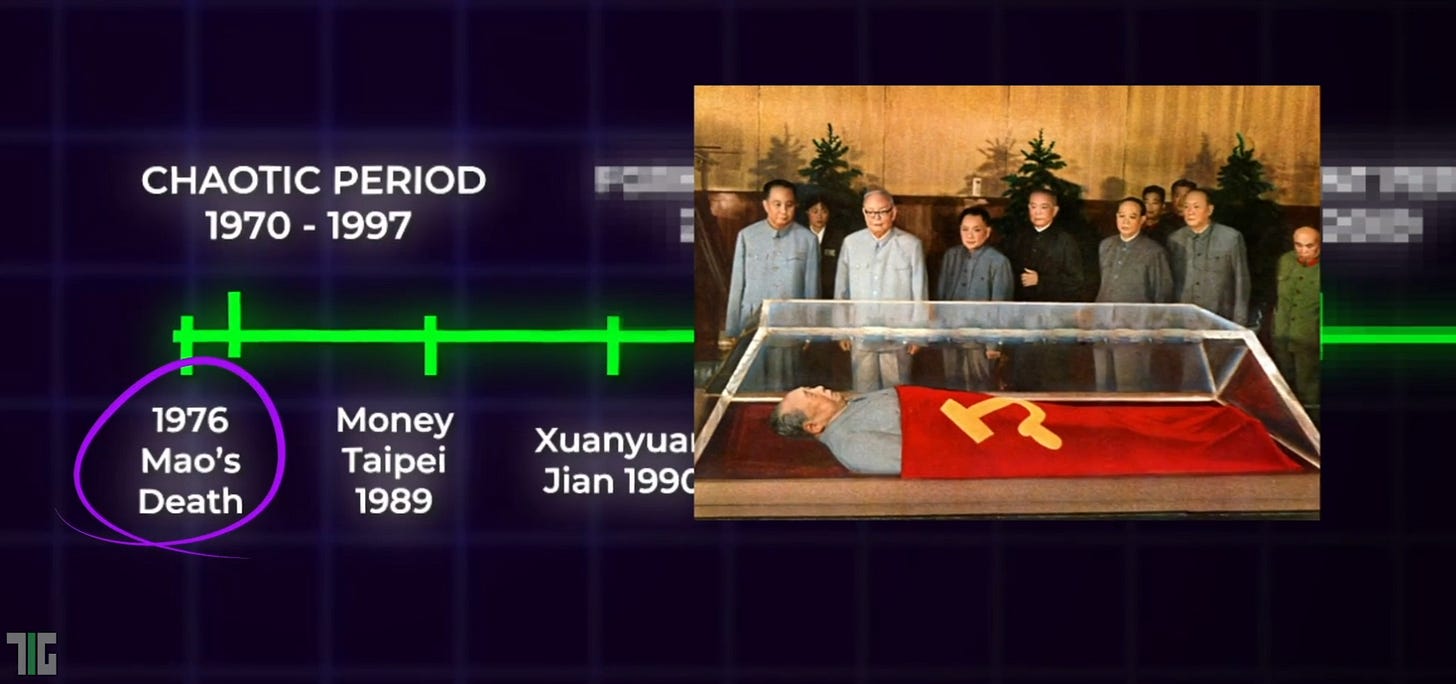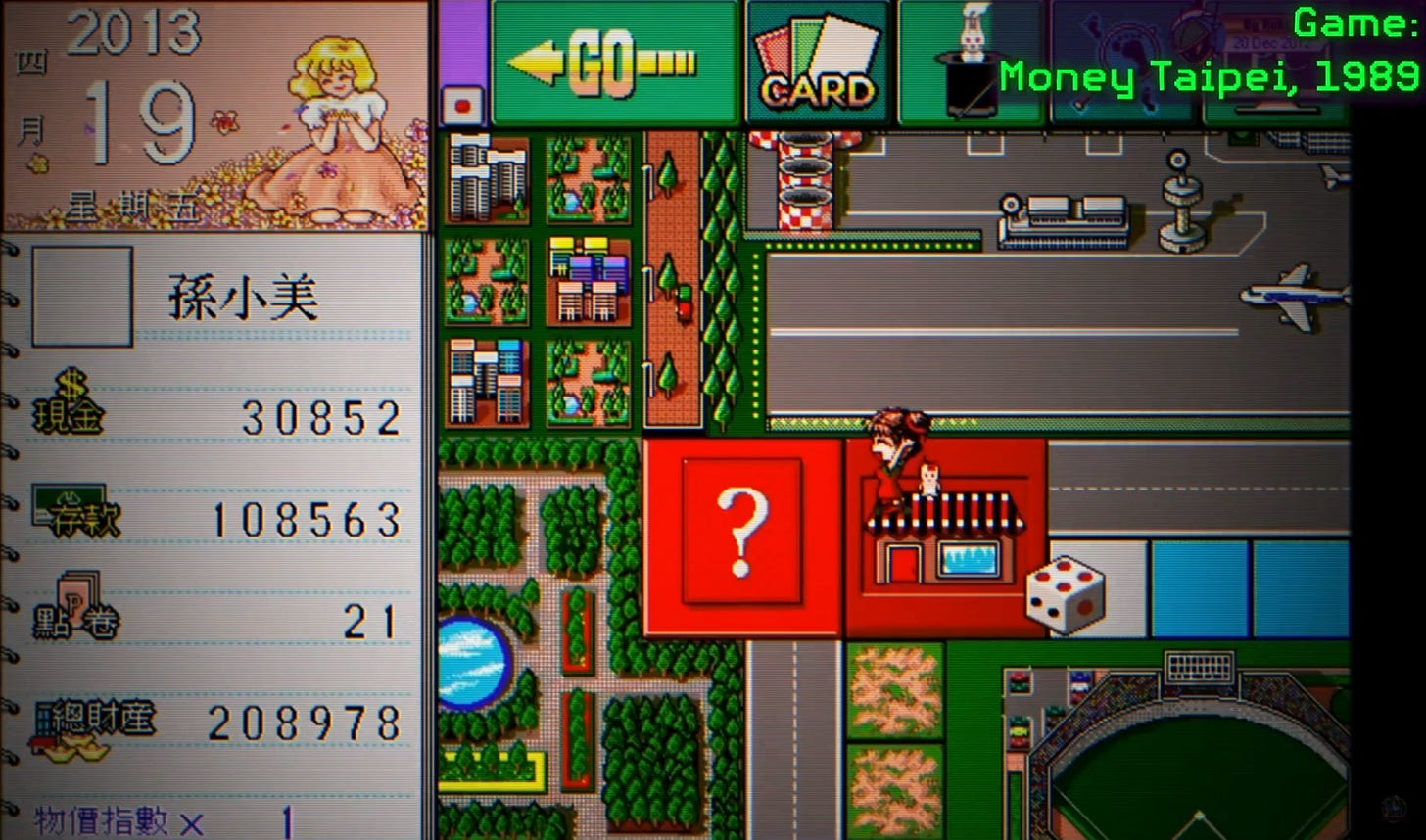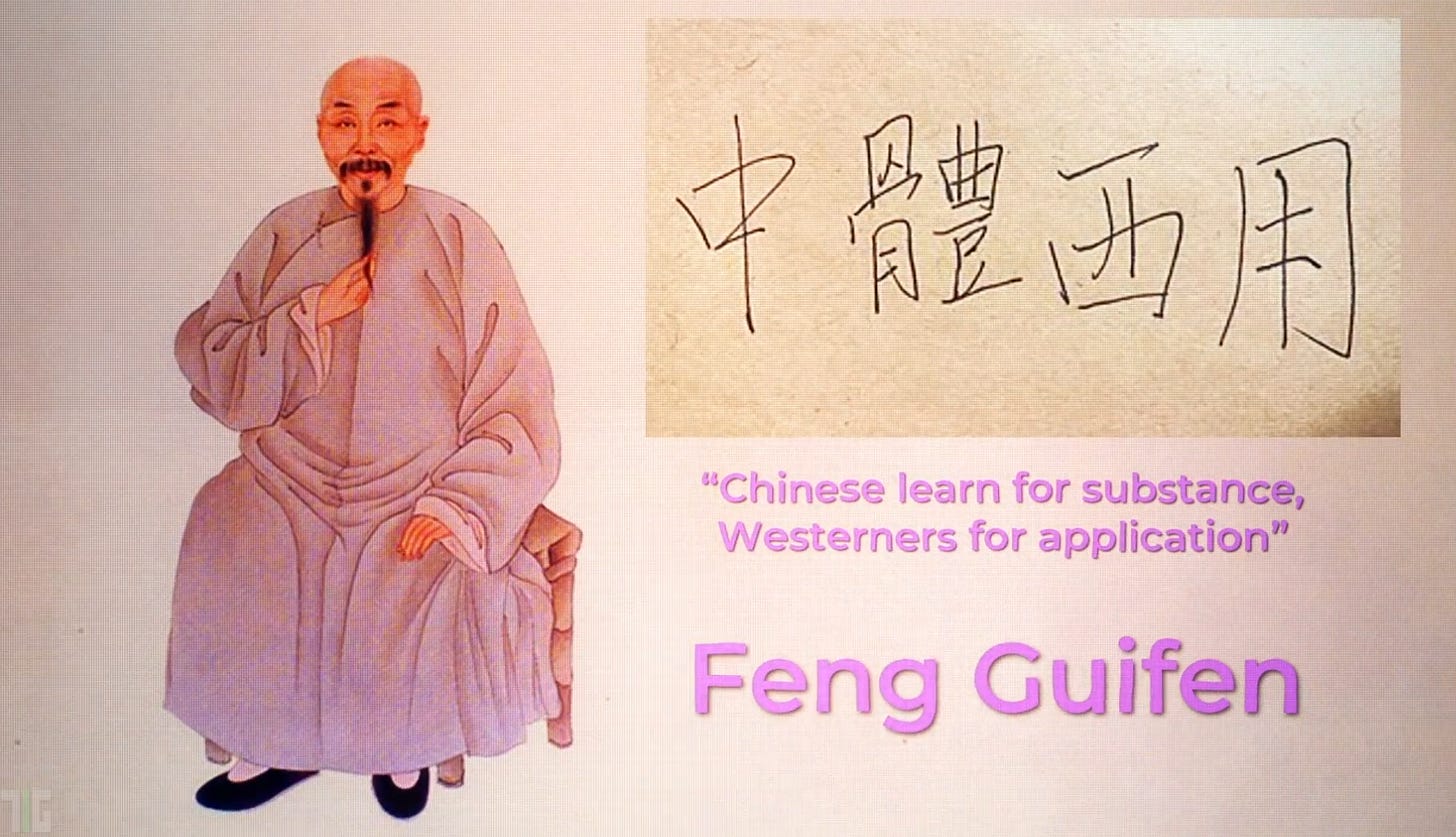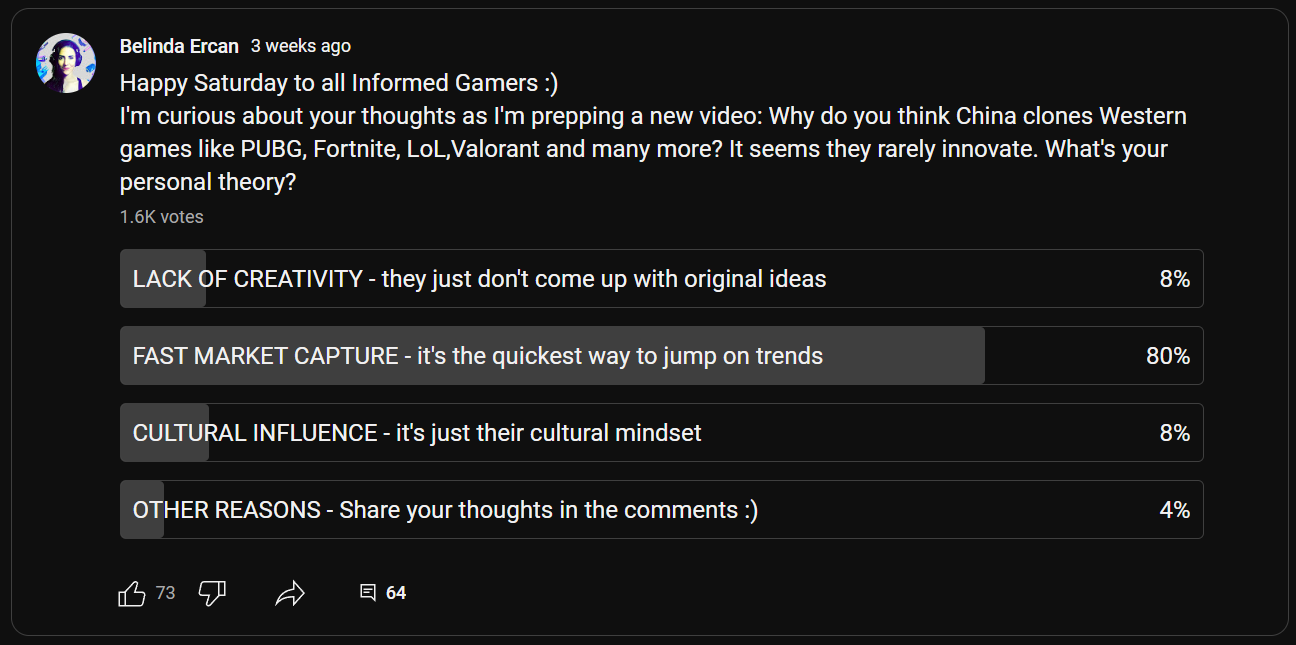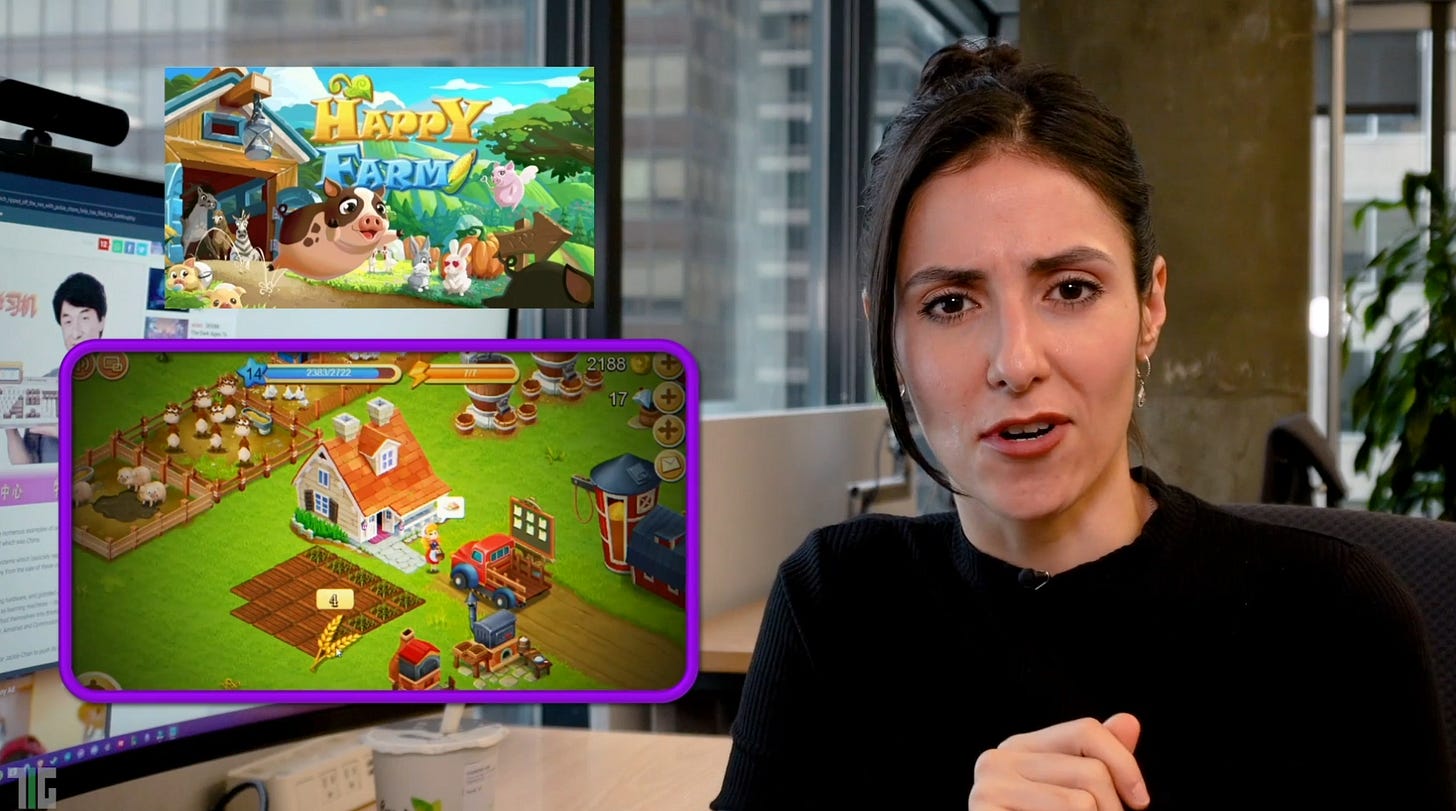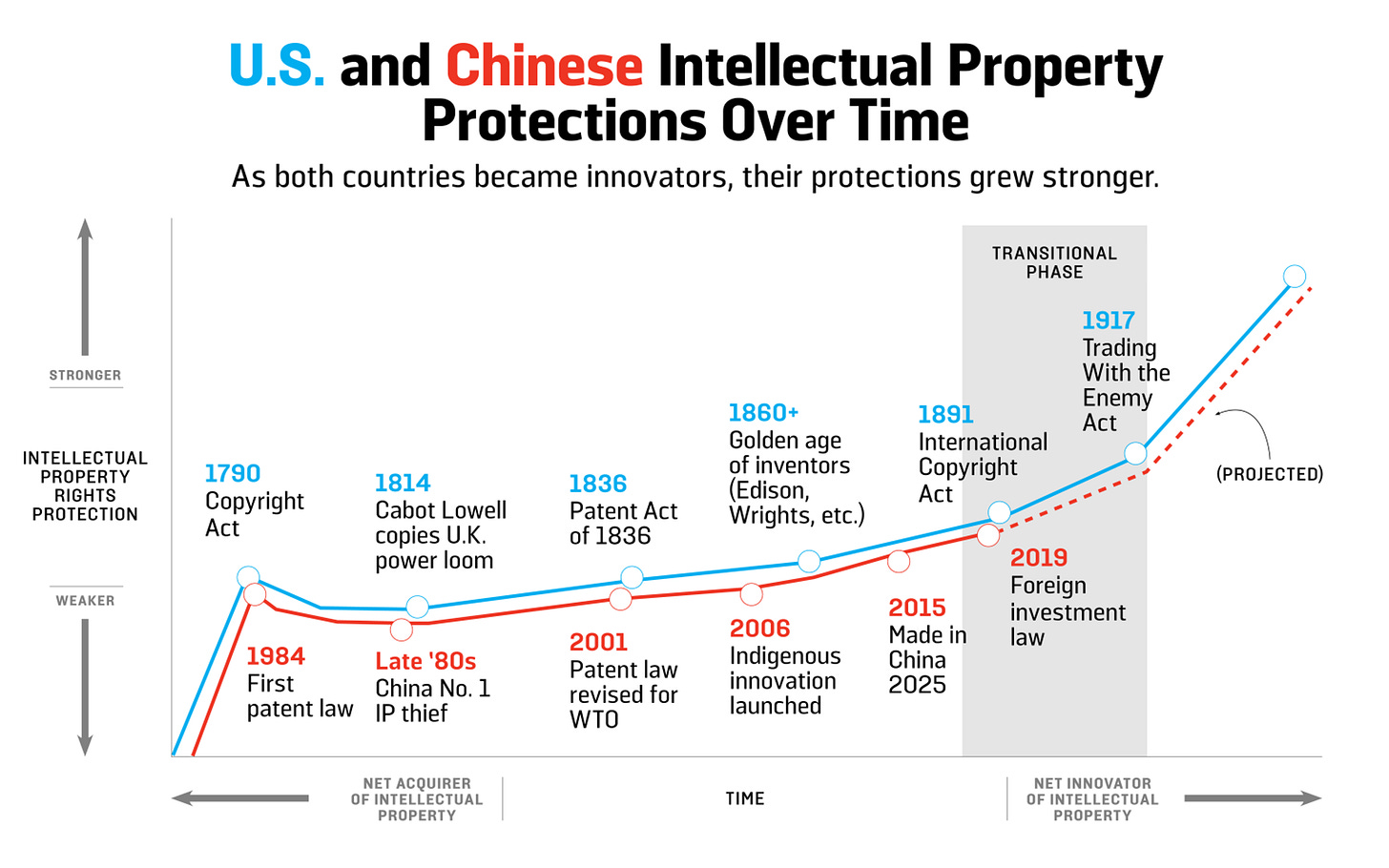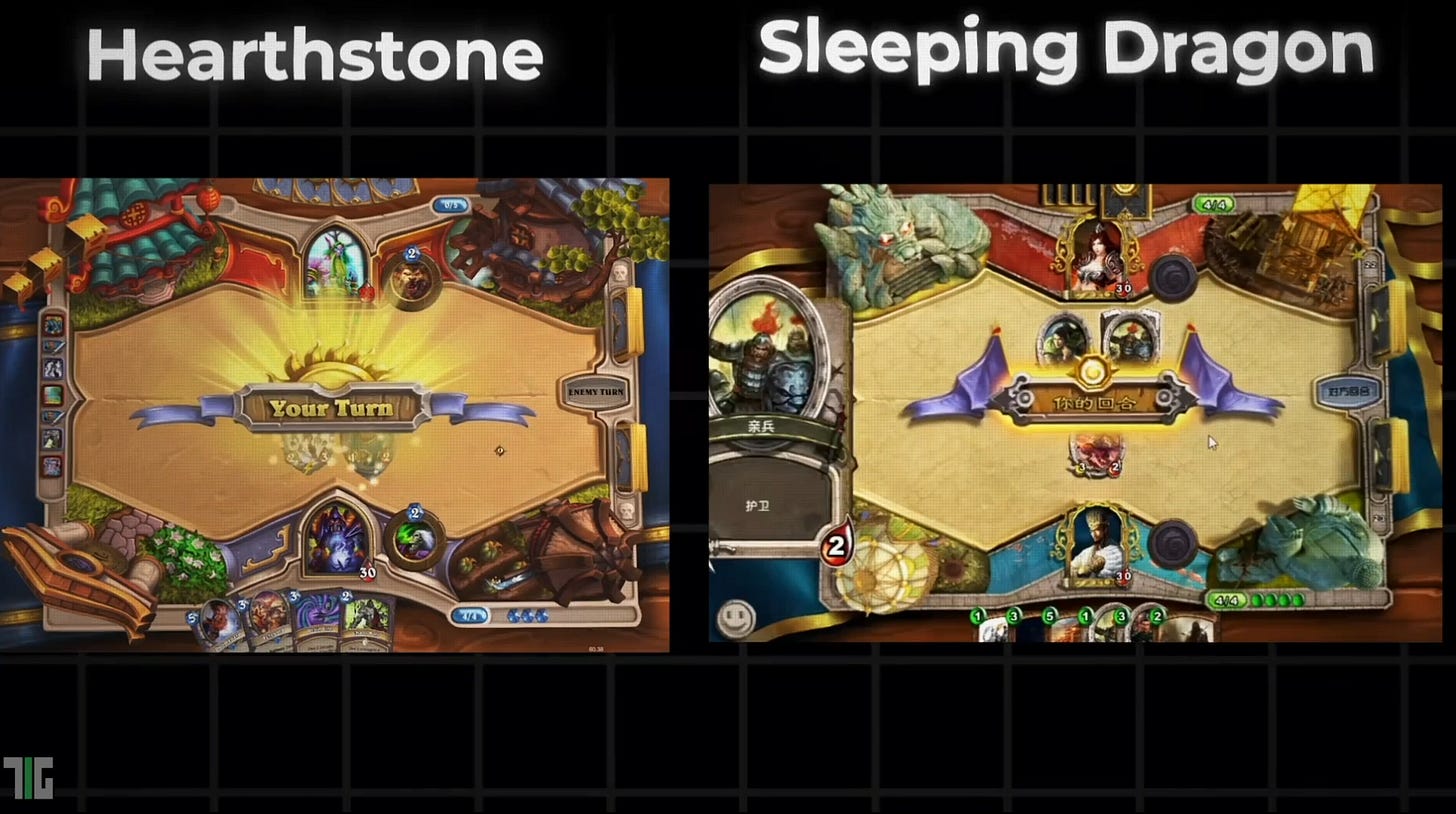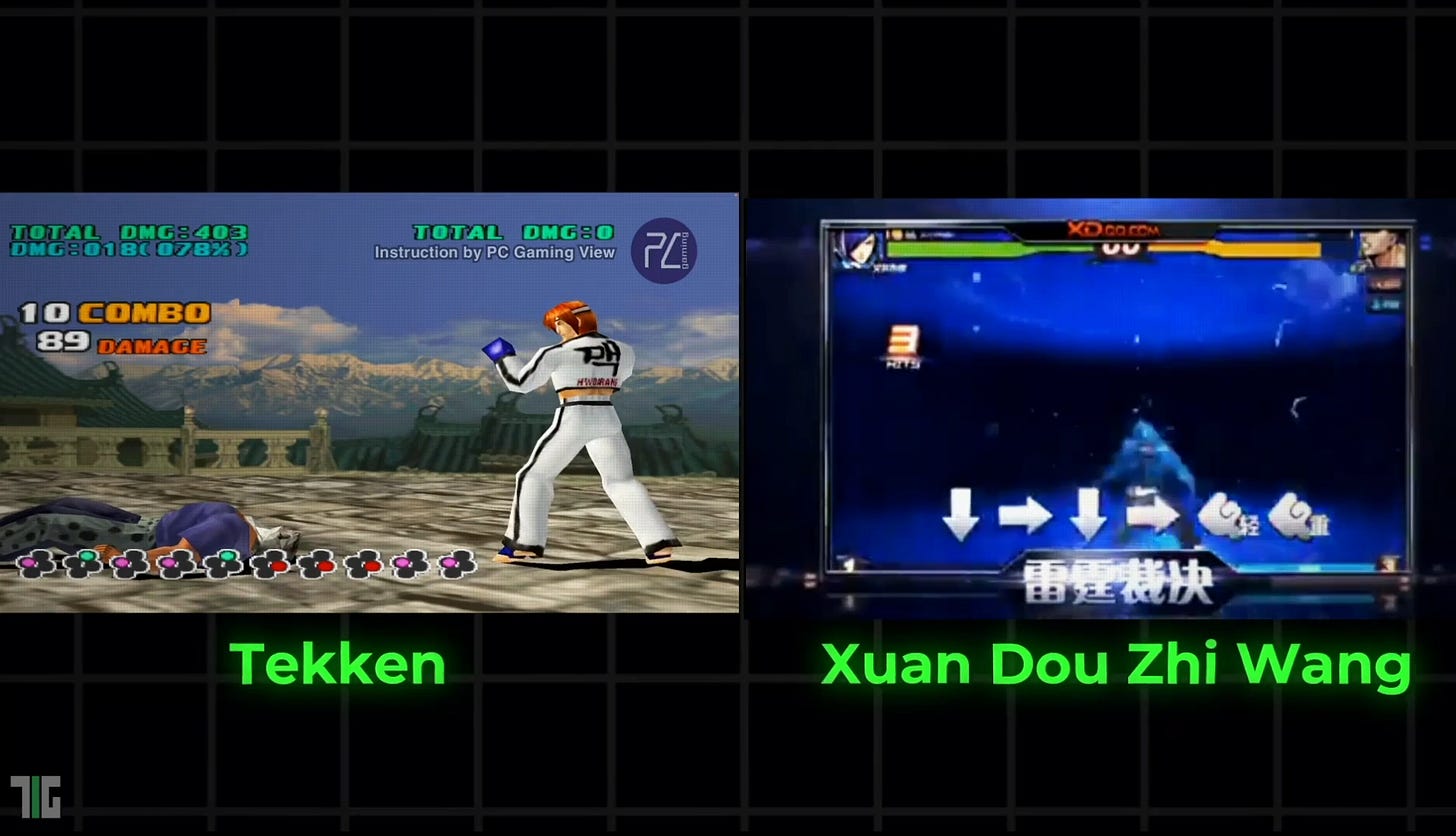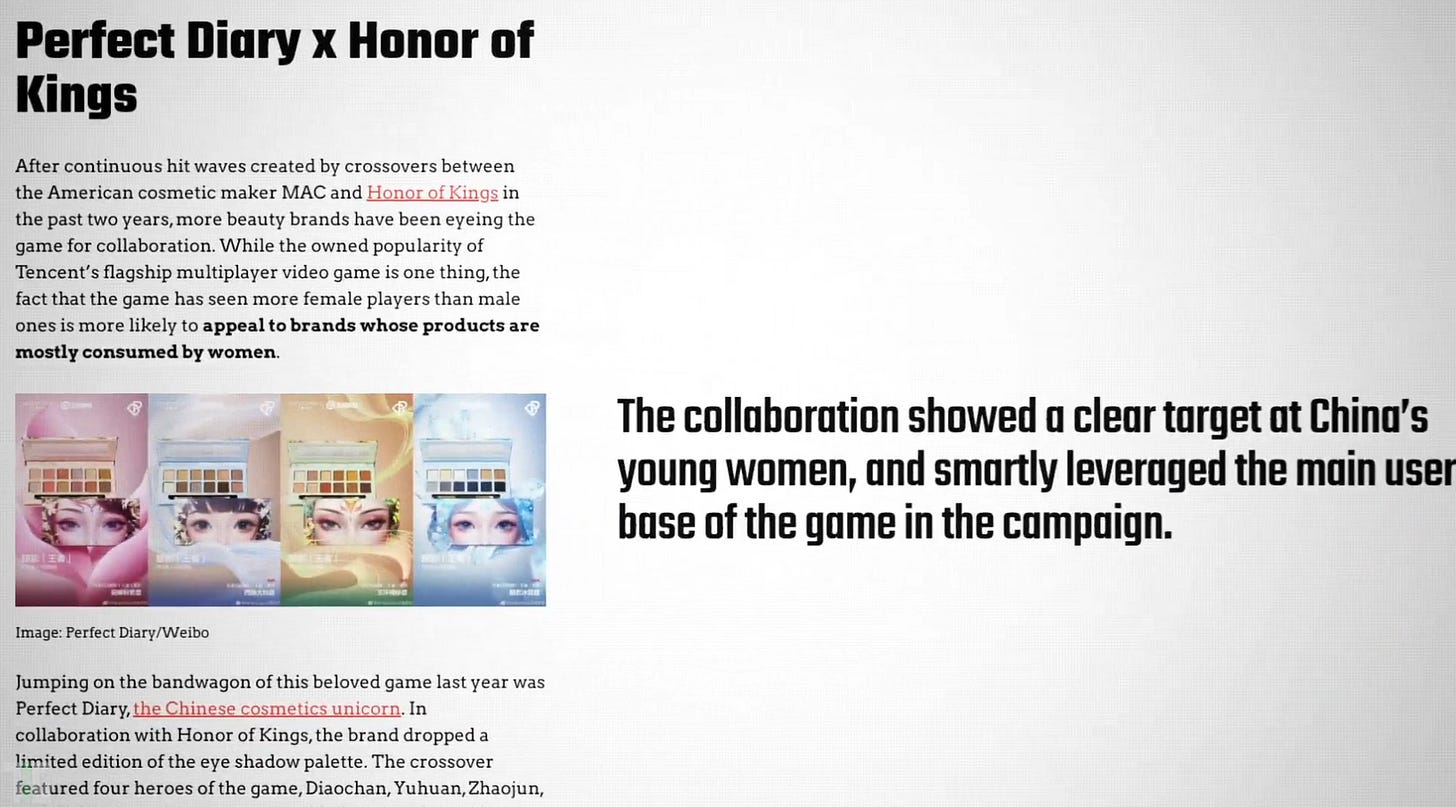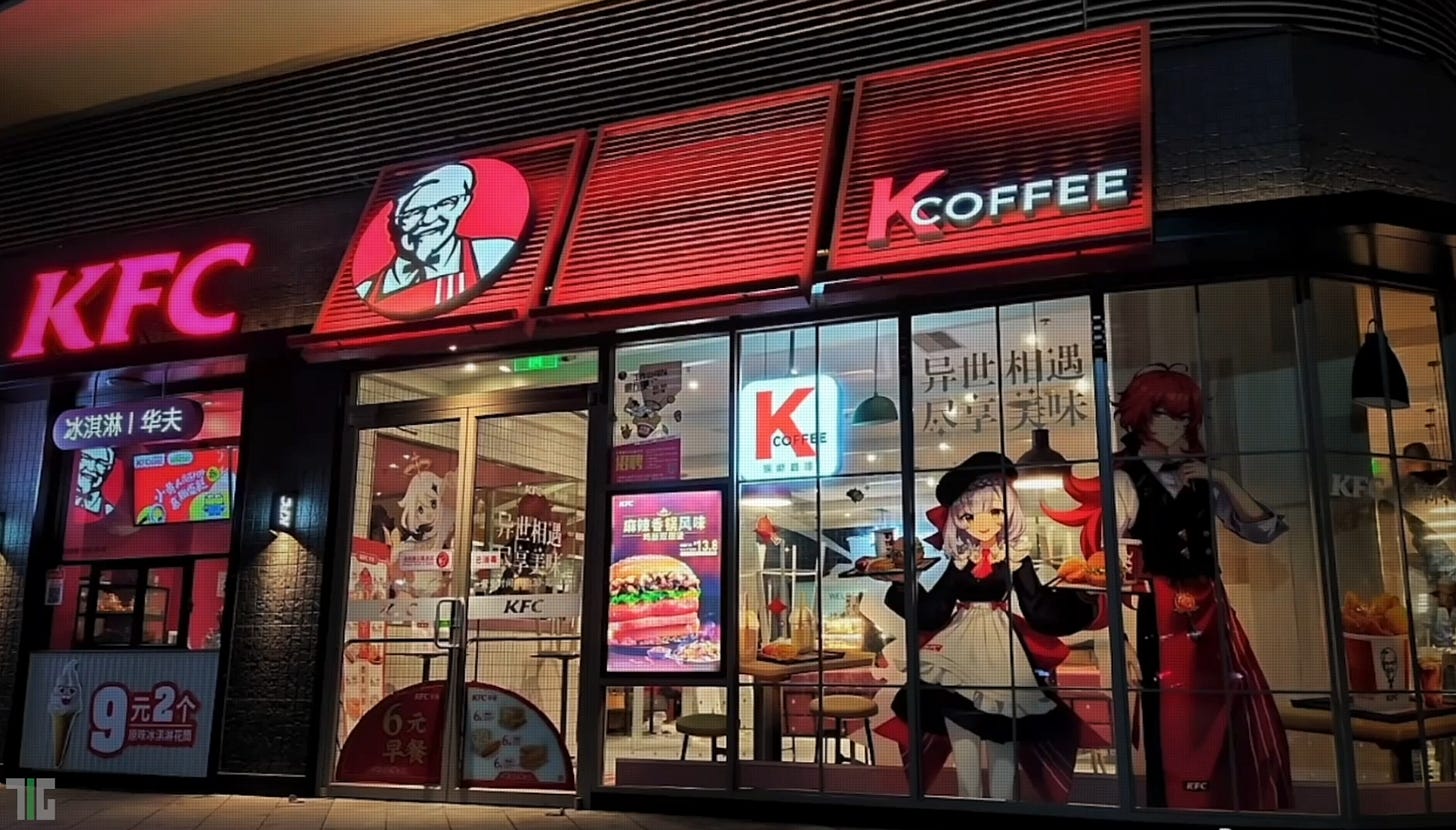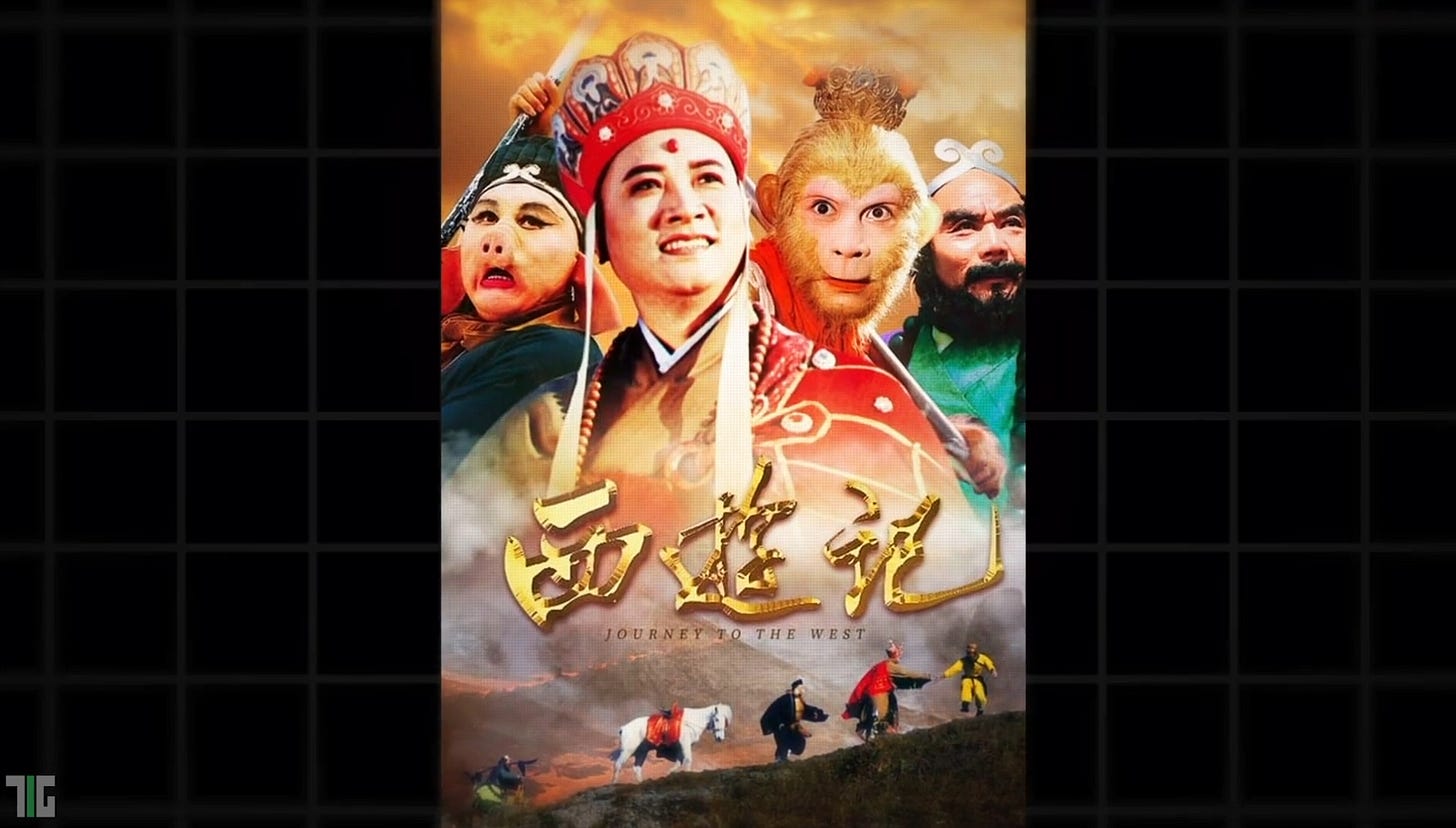China's Plan to Clone the Industry
A Journey to the West!
Noodles? Dumplings? How about stealing games?
Yup. From indie to AAA, China is set to clone the entire industry. Everyone copies a bit, but while the West does it quietly, China clones strategically to dominate the gaming world. But cloning your way to power has its costs. Thanks to some intel, I’ll reveal their 3-part cloning strategy, why they clone instead of create, and the unspoken tactic that might be their real key to global dominance.
Remember the buzz around Palworld for ripping off Pokémon? Now, Tencent, China’s gaming giant, is openly cloning it to incubate their next big hit. And Palworld’s maker calls this ‘Amazing Times.’ While the West cries “rip-off”, in China, it’s just another day at the office. And I'll show you how they do it.
But first, when I think of China, I think of…
Sorry.
I just couldn’t do a video about China and not mention my childhood hero Jackie Chan, because he was the face of the ‘Learning Machine’, the top Nintendo clone when importing consoles was too expensive.
And Jackie came with a keyboard, to not only play but learn through games like ‘Letters Invaders.’ I am bringing this up because the company behind it recently went bankrupt, thanks to China’s chaotic laws. And to understand their game-making, let’s first understand their law-making, which in China can change overnight. You see, games must be government-approved, to make sure they’re a cultural fit. From detailed game descriptions to source codes, the government checks everything, since games are dubbed “opium of the mind.” But when a regulatory shift kicked in, the government froze all game approvals for an entire year. Big games were blocked from making sales, causing huge financial losses and many new rules: Real ID registration, facial scans and limited gaming hours for kids.
The first freeze ended but a second freeze dropped the number of approvals even more. Today game approvals continue, albeit very slowly.
To top it off, China had a 15-year long ban on gaming consoles to crack down on gaming. But when the economy struggled, they lifted the ban to cash in on gaming. Suddenly, China was ready for the Switch, Playstation and Xbox, which meant the end for many local clone makers. And so, Keyboard Jackie disappeared, and with it the childhood memories of many Chinese. This nutshell version shows China’s unpredictable laws, which can change overnight. But there’s more than just red tape. To grasp their cloning strategy, we need to rewind a bit further.
Let’s start here: Mao’s death.
That’s when China flipped from ideology to economy, sparking the
CHAOTIC PERIOD OF GAMING: Unregulated, free-for-all and flooded with unlicensed copies. The very first Chinese PC game was pretty much a Monopoly knock-off. A year later, China’s first RPG entered the scene.
In the FORMATION PERIOD, regulations popped up but didn’t keep players from cloning. Shanda's "The World of Legend" cloned a Korean game and Tencent’s first game portal looked strikingly similar to another. But why did China, once famous for its world-changing innovations, become infamous for its imitations? It boils down to their view of knowledge. Knoweldge is seen as public good and trumps personal ideas.
As a Chinese official once wrote “Chinese learn for substance, Westerners for application.” In other words, use foreign knowledge to boost national power, whether it’s military equipment or architecture. That’s why a Chinese developer replicated Zaha Hadid’s design before her project was even complete. When called out, he claimed,
"I never meant to copy, only to surpass."
(A Chinese Real Estate Developer)
And here, dear viewers, lies the stark contrast: As a Chinese journalist notes: “Americans have hope, while we have targets.” But it’s not just about reaching targets. In China, it’s about reaching them fast.
Many of you nailed it in my community post: China clones for fast market capture. It’s more complex than this but wether it’s quickly capturing a market, cultural influence, or lax legalities, speed is key. That’s why during the
DEVELOPMENT PERIOD, China’s gaming industry exploded. Online gaming, loot boxes and microtransactions became the new gold rush, with giants launching games even on entirely homegrown 3D engines.
In the EXPANSION PERIOD, China became the largest gaming population in the world, and today,
in the MATURING PERIOD, the largest gaming market in the world. With Chinese gaming giants topping the revenue charts, it rightfully earned the title “Games Industry Capital of the World.”
Now before I show their cloning strategy, I want to get things straight:
Who does NOT clone? East or West, we all do it. Games have always been copied.
When Doom set the template for FPS, most FPS games were dubbed 'Doom clones.’ Same with ‘Diablo clones.’ Candy Crush ripped off Bejeweled which ripped off Diamond Mine. Paladin mirrored Overwatch, Saints Row GTA, and PUBG walked so Fortnite could run. That’s how genres are born.
However, there's a thin line between enhancing a concept and outright theft. America’s most notorious clone company is probably Zynga. A while back, EA sued them over ‘The Ville,’ for ripping off ‘The Sims Social.’ As soon as EA released ‘Restaurant City,’ Zynga released ’Cafe World,’ with striking resemblance.
The fun part: FarmVille, the game that put Zynga on the map, that too is just a rehash of Chinese game Happy Farm, which itself is a rehash of Japan’s Harvest Moon.
Or check out ‘Deviator’ from a Chinese studio. From UI to mechanics, Deviator doesn’t seem to deviate too far from its inspiration. Then there is Piano Tiles.
This Chinese hit game spawned so many knock-offs, this lady didn’t need long to prove her point.
You see, we all do it to some extent. But while the West does it subtly, China does it agressively and here is why:
Reason ♯1
Pressure.
In a blog titled “How I Put Together a Game Map That You’ll Despise,” a Chinese designer shows how to clone a game map quickly, saying “Plagiarizing is an art in itself. If you think I shouldn’t be a designer, then sorry, but I’ll continue to be one to make a living.” Yes, in China, studios push for super fast turnarounds; no time for innovating. Meanwhile, Western studios, they take their sweet sweet time. But doesn’t China have copyright laws? Which leads us to…
Reason ♯2
Lax copyright laws.
Many think China lacks them, but they exist and are similar to the US. They just aren’t enforced as strictly. Look at this:
Game Mechanics & Ideas? Not protected in either country.
Art & Graphics? Protected in both, barely enforced in China.
Story and Text? Enforced in the US, loose in China.
Same with Sound & Music.
So why work on new ideas if anyone can just copy them faster than you can say copyright infringement.
Blizzard’s Hearthstone for example was cloned within a few months of its release. Sleeping Dragon doesn’t just look simliar, it looks & sounds identical. Blizzard sued them and walked away with $2M. Or take Honor of Kings—China’s top mobile game. Its maker Tencent faced numerous lawsuits, especially with this one, which cloned almost everything from game design to characters and even marketing tactics (can the latter even be protected?)
Netease, Blizzard’s Chinese partner, sued for an "Overwatch" clone and walked away with half a million dollars. But only to be sued by…
PUBG Corp, as NetEase created two mobile games very similar to PUBG on PC.
So if everyone clones and sues everyone, why can’t Western studios do the same? Forget about it. Which leads to..
Reason ♯3
Legal Inaction. It's nearly impossible for foreign studios to enforce their rights in China. The legal system often favors local firms anyways. And even if you win, it might not even be worth the cost.
When Tekken’s 3 training mode was patented worldwide, including China, it didn’t take long for a Chinese fighting game to ignore the patent and feature a strikingly similar mode.
Enforcements in China are hit or miss. But their 3-part cloning strategy isn’t. Because if they’re good at something, it’s at ‘monitoring.’
Stage 1: Monitor
In the monitoring stage, it’s all about observing global gaming trends and adapting them to China’s strict regulations. Many foreign games in China are banned because they don’t pass the cultural test. Blood, nudity, extreme violance - a no-go. ‘Sleeping Dogs’ for instance didn’t pass the test because it took place in Hong Kong. ‘Shenmue 3’ also didn’t because it showed real-life Chinese locations. Hoppu Games showed a red effect around the icons which is the color of blood. And Pokemon Go didn’t pass because Google Maps is banned. But ‘Let’s Hunt Monsters’ filled the gap of this genre quite nicely.
Now, here is where it get’s interesting: How do you identify breakout genres? Well, according to their strategy, genres tend to emerge every six years:
From FPS to MMORPGs to MOBA and Battle Royale. And by tracking Steam tags, they can monitor genres with global breakout potential, to ensure they’re at the forefront. Which leads us to:
Stage 2: Cloning
Once they spot a breakout genre, they quickly clone and test them. In case of a small hit, they doubledown through strategic partnerhips. When MOBA and Battle Royale emerged, notice how Tencent acquired Riot Games and secured PUBG mobile rights. They then rolled out ‘Honor of Kings,’ which is basically ‘League of Legends’ and tailored it for Chinese players on mobile. And when NetEase released mega-hit game ‘Eggy Party,’ a ‘Fall Guys’ clone, Tencent redirected hundreds of devs from working on Assassin's Creed Jade to their own party game, DreamStar. No wonder AC is delayed to 2025. The party game genre has priority. But cloning isn’t just about mimicking game mechanics. You gotta clone smartly to gel with the Chinese culture. That's why a direct clone of PUBG wasn't successful. Tencent had to rebrand it as ‘Game for Peace,’ a patriotic, non-violent version to comply with Chinese regulations—players wave goodbye instead of dying, and they emit light instead of blood. As the designer lady said: Cloning is an art in itself. Which brings us to the next stage:
Stage 3: Scaling
Once a cloned game becomes a small hit, the real magic happens—scaling. Put it on mobile, PC and make it F2P. But not just that - you gotta boost the marketing too. Let’s go back to ‘Honor of Kings.’ Once cloned and culturally adapted, it became the no 1 game. And so Tencent threw everything at it—massive ad campaigns, celebrity endorsements, collaborations with beauty brands to bring in female gamers - or take Genshin Impact; they didn’t just collaborate, they genshified entire KFCs to reel in mostly male gamers.
Once it’s on every platform and the marketing is rolling, they try to push it globally. But what's working in China doesn’t necessarily work abroad. Take ‘Arena of Valor,’ for instance. It’s the Western version of ‘Honor of Kings’ and flopped internationally for two reasons: First, it launched just as the battle royale craze with Fortnite took off. Second, it’s a game lost in translation. ‘Honor of Kings’ hooks players with its rich Chinese cultural context, covering historic heroes to iconic poets. But when ‘Arena of Valor’ tried swapping in Norse, Greek, and Roman figures, it just didn't click the same way. There just is no cultural shared literacy. And honestly, I’m not sure if throwing Batman or the Joker into the mix is going to change that
.
In any case, this strategy of monitoring, cloning & scaling is their way to find that “Winner Winner Chicken Dinner.”
BUT, there’s a deeper game at play here. Just when you think cloning is their only ace, they’ve got another card up their sleeve: Buying out foreign firms.
Sure, that’s not specific to China, but there’s a catch. Foreign game studios have to work with Chinese firms to sell their games in China. Which means they have to share their profits. Not many foreign companies want to do that, which means less competition and more money for China. And with more money, they can easily buy more foreign studios for some hefty sums. With this advantage of being a closed market, the Communist Party is aggressively buying out Western industries. While Hollywood spread its American values through movies, perhaps it’s now China’s turn to do the same, but through games. In a communist state like China, this means everything, including games, is controlled by the state. So while the West tries to ban TikTok, it should perhaps look behind the scenes of Western game studios, that provide access to millions of personal data points.
And so, long gone are the days when you could just pop a cartridge into Keyboard Jackie and stay “untraceable.” However, this all isn’t without its challenges. In China, the gaming community is growing tired of it all, espcially of the game of clones. When ’The Legend of Neverland’ came out, a blatant clone of ‘Genshin Impact,’ gamers were not impressed, and the criticism was fierce. And when Plague Inc was taken down the App Store, because you know why, a Russian clone appeared which faced huge backlash from Chinese gamers who mistook it as yet another copycat move.
And so, the ‘Winner Winner Chicken Dinner’ strategy might not be cutting it much longer. Which is where ‘Black Myth: Wukong’ game enters the scene. Dubbed China’s first AAA game, Black Myth Wukong is their first dab at creating something truly new. But while this game might be setting a new trend in China, it’s really just a very lone wolf for now. Ironically, it’s inspired by the Chinese tale ‘Journey to the West,’ a tale that couldn’t be any closer to China’s broader intentions…
Maybe that’s the real lesson here. In the fast-paced world of gaming, cloning and owning games might bring quick success, but the real test will be whether China can create them from scratch.
Until then, Happy Cloning.


